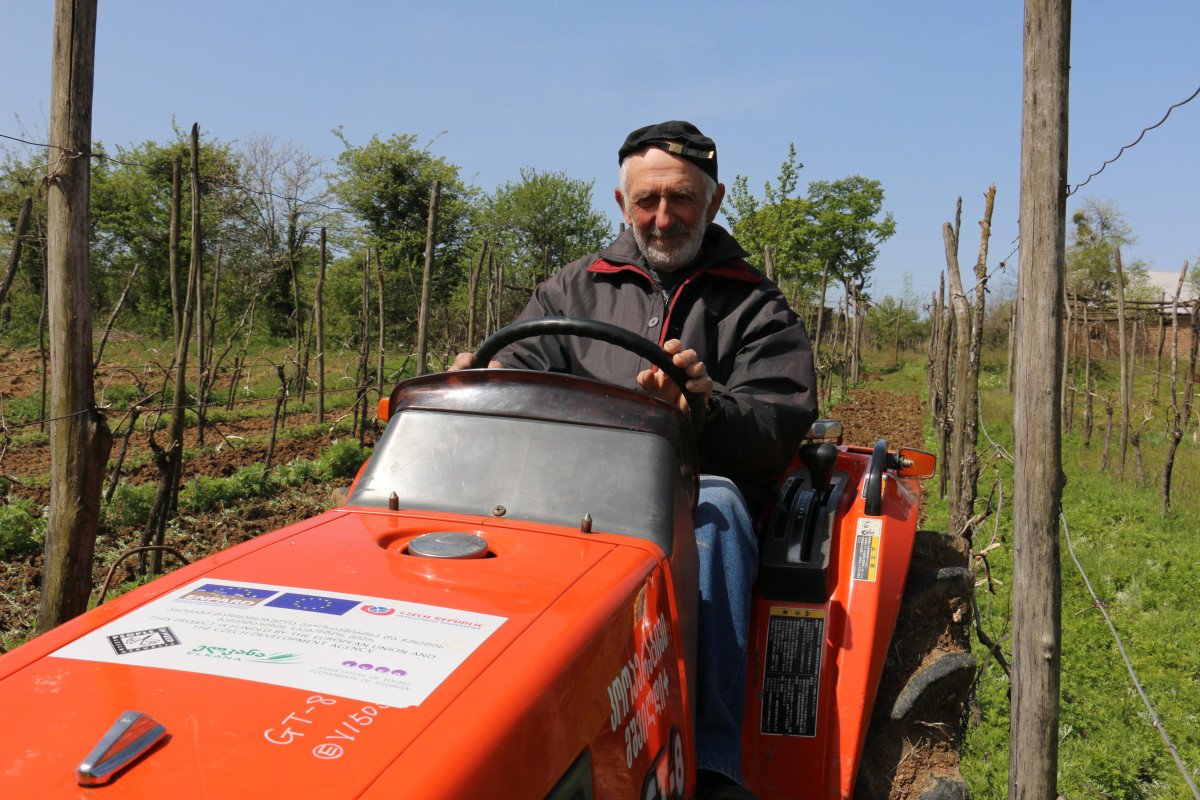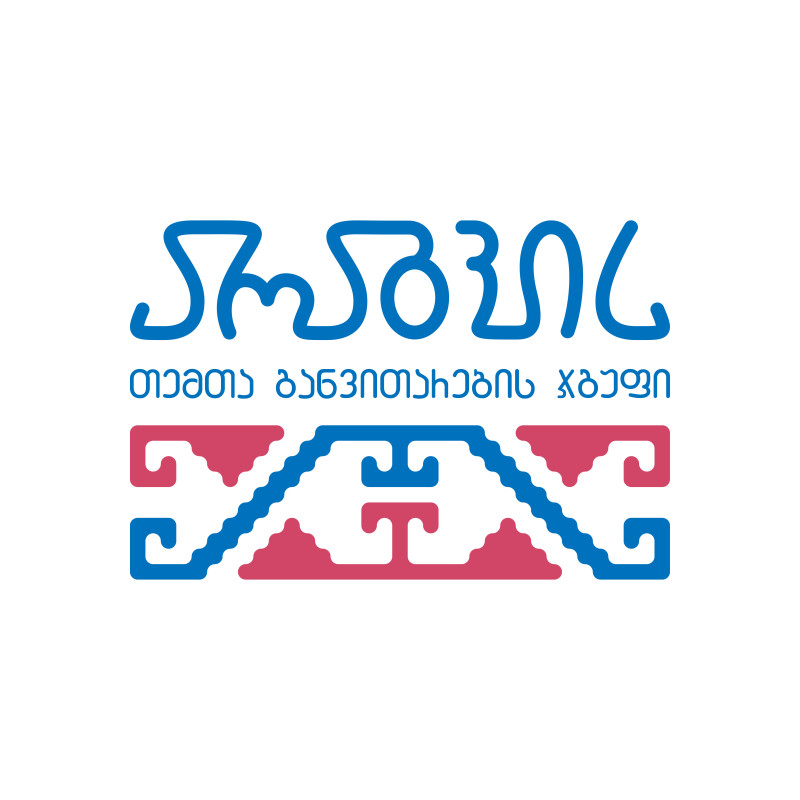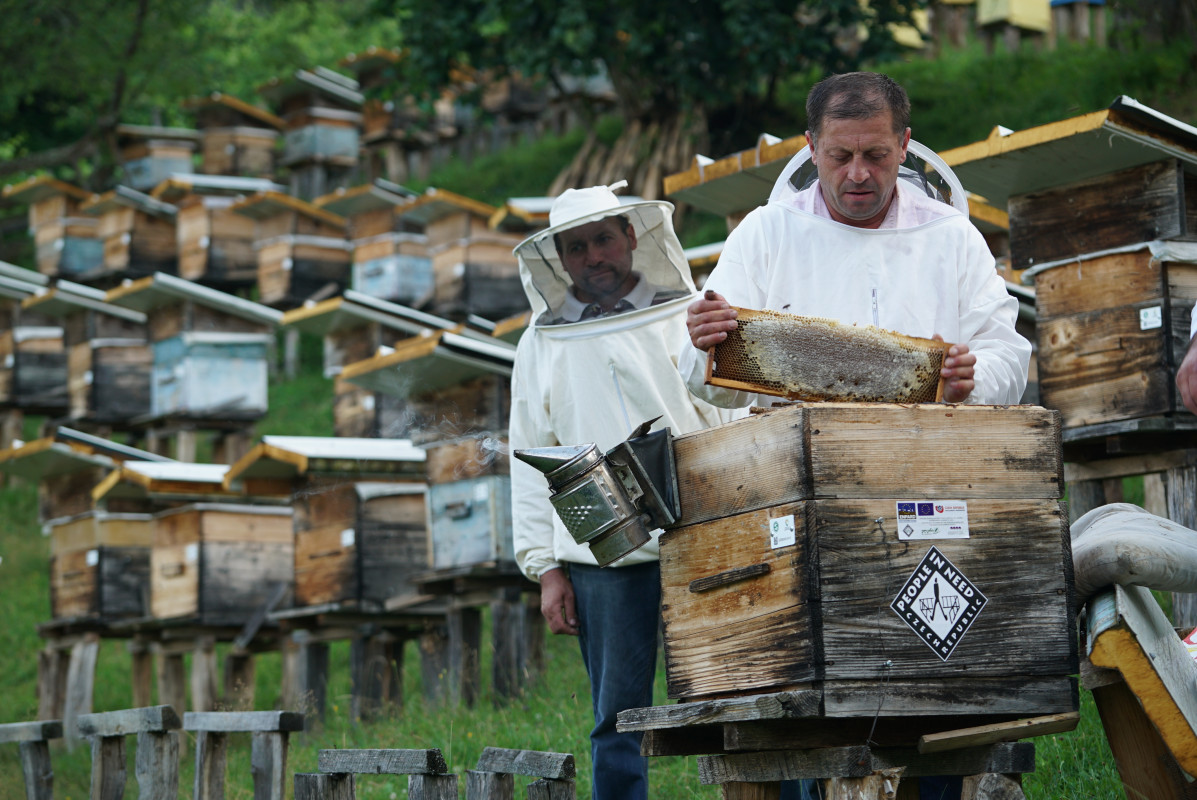PIN helps small subsistence farmers and their families escape poverty.
PIN supports the formation of cooperatives of like-minded farmers and gives them access to the information, knowledge, markets and services they need to develop their livelihoods.
Past Activities

Transcaucasian Trail – Promoting Cross-Border Tourism
Project Timeframe: 04/2022 – 02/2023
Project Partners: People in Need Armenia, Transcaucasian Trail NGO of Georgia, Transcaucasian Trail NGO of Armenia
Project key Stakeholders: LAG Aragvi, Akhalkalaki LAG, WINNET Armenia
(Vanadzor and Gyumri offices)
Overall Objective: The regional project aims to develop a new network of rural and
adventure tourism actors across the two countries
Project Area: The project is implemented in Georgia (Aragvi and Akhalkalaki) and in Armenia
(Lori and Shirak provinces)
Project Beneficiaries: Micro and small-medium enterprises (MSMEs) in Georgia and in Armenia, representatives of the public sector: local authorities, protected areas, tour operating companies, members of Local Action Groups (LAGs), Women Resource Centers (WRCs), Georgian Association of Local Action Groups, Georgia (GALAG)
Main Project activities:
- Conducting 12 days of trail maintenance training in Georgia and in Armenia
- Distribution of 4 tourism grants for MSMEs
- Desk review and identification of 4 new hiking trails in Aragvi, Akhalkalaki, Lori, and Shirak provinces
- Marking of the new hiking trails on Open Street Map
- Conducting the 4 regional assessments of tourism infrastructure and gaps analysis
- Organization of the practical and theoretical training for tourism MSMEs on Marketing in Georgia and in Armenia
- Creation of tourism promotion materials for 16 target MSMEs
- Development and publishing of multi-media Aragvi cultural trail guide
- Developing the international and domestic trails promotion campaign

Local Action Group (LAG) Tskaltubo
The project aims to contribute to reducing poverty through integrated, sustainable and participatory rural development in Tskaltubo municipality by introducing the LEADER approach to enhance employment, rural economy, community empowerment and living conditions of rural population.
It is the basic principle of the LEADER approach that the action targets all types of local public, private and civic actors and individual inhabitants to create local partnerships and direct local resources towards more effective development. The active and committed representatives of Local Government, entrepreneurs, farmers, CSOs, citizens, IDP initiative groups and other important local players, are all invited to participate in local strategy planning and become members of Local Action Group (LAG).
Together, following on from regional research undertaken jointly by the LAG and project team, the LAG members formulate the Rural Development Strategy, with substantial input from other community members. Once the Strategy is developed, they solicit calls for proposals from residents and distribute small grants for projects in areas prioritized by the Strategy. The whole process is transparent and open to any resident of Tskaltubo. The Action includes a strong capacity-building component for all target groups to enable a new methodology to be efficiently implemented, and to ensure the sustainability of project outcomes.
Based on experience from EU countries, which have a long history of LEADER implementation, and on the experience of Kazbegi and Akhalkalaki LAGs, this approach ensures that active individuals are able to mobilize their social networks, the level of community participation increases overall and it helps economic development renewal. The individual projects supported by small grants can become positive models to follow. The networking activities bring innovations to remote areas.
Implementing Organization: People in Need
Partner: Georgian Institute of Public Affairs (GIPA)

Local Action Group Aragvi
The project is designed as a part of a larger 5-year program of sustainable development within the area of the Aragvi Protected Landscape and its communities. This mountainous area, consisting of three distinct communities, has extensive natural resources and high tourism development potential. However, development has stalled due to out-migration and depopulation over the last decades. The causes of this migration include insufficient infrastructure and public services as well as the lack of viable economic opportunities. Therefore the main aim of this project is to improve the socio-economic situation of the communities living in the APL either permanently or seasonally, as well as to attract those who are affiliated with the target area to become more actively involved there.
This will be achieved through an integrated approach consisting of the following:
1) Market systems development approach for the development of tourism and agriculture, combined with grants for entrepreneurs in these sectors to accelerate their growth.
2) Promoting civic engagement of the local population through capacity building and awareness-raising, especially of youth, with a focus on local culture and heritage knowledge building, gender issues and environmental protection.
3) Establishing a Local Action Group (LAG) based on the LEADER approach, which will serve as a central mobilization, discussion, and knowledge transfer platform. The LAG will produce a local development strategy (LDS) for the target area and manage part of the grant scheme envisaged under this project, to support the implementation of the LDS. Throughout this process, the balanced representation and involvement of the three distinct communities as well as of specific marginalized groups such as youth, women, people living in the most remote areas, and people with disabilities, will be ensured by the LAG. The LAG will also serve as a platform for interaction and coordination with the APL administration.
The whole project will be implemented and coordinated by People in Need, drawing on its experience from applying the LEADER approach in developing the neighboring mountainous municipality of Kazbegi, and the socio-economically deprived Tskaltubo district.

Sustainable Development of Beekeeping in Georgia
Direct target groups of the project: small and medium beekeepers; staff of Information and Consultation Centers (ICC); staff of Regional Educational and Consulting Beekeeping Center of the union-association Agora; staff of the Laboratory of the Ministry of Environmental Protection and Agriculture.
Objectives of the project/expected outcomes:
✔ Introduction of internationally-certified methods in the Laboratory of the Ministry of Agriculture and implementation of control over the quality of apiculture products by an accredited laboratory, which will enable it to award international quality certificates. Accreditation will allow to control the quality of honey, which will not only positively affect the safety of the products intended for domestic consumption but will also boost export of products to the international market.
✔ Use of new and effective bee breeding and bee production processes by small and medium beekeepers, expansion of knowledge and skills among beekeepers through the provision of needs-oriented trainings and workshops, grants and technical assistance. It will lead to an increase in the number of local beekeepers by applying modern solutions; it will also facilitate the production of high-quality honey by farmers and increase the volume and value of their apiculture products.
✔ Establishment of a regional, multifunctional educational and consulting beekeeping enter and ensuring its smooth functioning. The center will provide practical and theoretical trainings to small and medium beekeepers, organize a fair/exhibition of apiculture products and take charge of their promotion.

Strengthening Rural Development Models in Georgia
One of the most important parts of the project is the establishment of a network of all LAGs developed under the ENPARD programme. This network –the “Georgian Association of LAGs” (GALAG) – will be a conduit for information exchange and learning across the country. It will act as an advocate for community-led local development with key state and non-state actors.
The overall goal of the project is to improve the quality of life of the rural population of Kazbegi through integrated, sustainable and participatory rural development in Georgia.
Rural Development Project in Georgia is part of European Neighbourhood Program for Agriculture and Rural development ENPARD-Georgia, a European programme designed to improve employment and living conditions in rural areas of Georgia. The project is based on the EU-developed LEADER approach- LEADER is a French abbreviation and translates as “Connections between actions for economic development of rural areas” and provides rural communities with a method for involving local partners in steering the development of their areas.

Introducing EU Phytosanitary Standards to Georgia
To contribute in the increase of the incomes of Georgian agriculture, it is necessary to improve the competitiveness of the country's producers for both local and international markets. This is the aim of the Project supported by USAID, to enhance the positive impacts of the planned national phytosanitary reform, that will allow country's agricultural sector to implement the national and EU legislation in plant health, pesticides and fertilizers, and laboratories. PIN will be working with various local partners to ensure that Georgian producers of plants and plant products are aware of phytosanitary requirements and able to comply with them.

Local Action Group (LAG) Kazbegi
The project introduces the LEADER approach to Kazbegi district. LEADER “Liaison Entre les Actions de Development Rural”, means, links between the rural economy and development actions, that is a local development method which allows local actors to develop an area by using its existing local development potential al development potential.
The LEADER approach has been an important component of EU Rural Development Policy for over 20 years. It is piloted for the first time ever in Georgia. PIN supports participatory mechanisms in local decision-making processes and the district's sustainable growth, as well as improve the quality of life of its residents. Built-in follow-up surveys, close monitoring and evaluation will provide data and lessons learnt to facilitate LEADER implementation adapted to the local context in other rural regions in Georgia, for an improved model of the participatory decision-making process and a tool for sustainable rural development.
It is the basic principle of the LEADER approach that the action targets all types of local public, private and civic actors and individual inhabitants to create local partnerships and direct local resources towards more effective development. The active and committed representatives of Local Government, entrepreneurs, farmers, CSOs, citizens and other important local players, such as the Kazbegi National Park Administration, are all invited to participate in local strategy planning and become members of Local Action Group (LAG).
Together, following on from regional research undertaken by the team, the LAG members formulate the Rural Development Strategy, with substantial input from other community members. Once the Strategy is developed, they solicit calls for proposals from residents and distribute small grants for projects in areas prioritized by the Strategy. The whole process is transparent and open to any Kazbegi resident.
The Action includes a strong capacity building component for all target groups to enable a new methodology to be efficiently implemented, and to ensure sustainability of project outcomes. Based on experience from EU countries, which have a long history of LEADER implementation, this approach ensures that active individuals are able to mobilise their social networks, the level of community participation increases overall and it helps economic development renewal. The individual projects supported by small grants can become positive models to follow. The networking activities bring innovations to remote areas.

